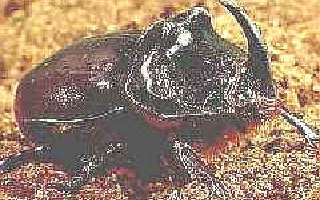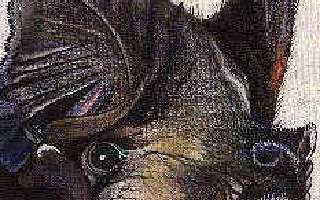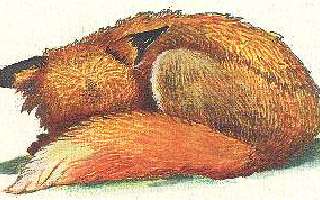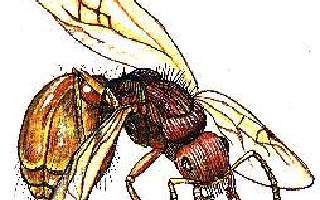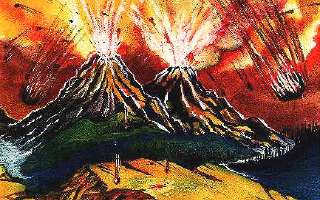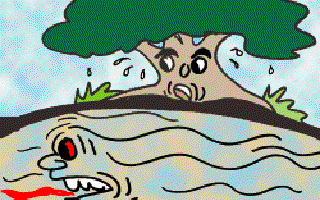113 items in this section. Displaying page 11 of 12
It's a Beetle's World
Have you ever had winged visitors to your room on a rainy day, that are black, shiny and button-like, and which fall to the ground with a distinct tapping sound? You might also be familiar with those cute-looking insects with bright orange bodies dotted with black, called Ladybirds, hovering over flowers and tender leaves. There also might have been times when an unlucky one splats on your windshield or gets crunched underfoot. Well, these are all different kinds of BEETLES — creatures that can be called evolution’s biggest success story....
The Truth About Bats
Bats are among the world’s least appreciated and most endangered animals, thanks to centuries of myth and superstition. Contrary to common misconceptions, bats are not blind, they are not rodents and they won’t get tangled in your hair. The truth is that bats are mong the most gentle and beneficial animals on earth. A bat is a winged mammal with the ability to fly. It’s ability to maintain sustained flight, unique among mammals, results from the modification of hand-like forelimbs into wings....
Fox
If there is one animal that lives by its wits then it is our very own Fox. Sheer ingenuity has made him a survivor literally. And it is due to its own dexterity that the Red or common fox is doing very well in Britain, North America and North Africa unlike it’s cousins the wolf and the wild cat. Man is his only enemy. Ironically though, he still prefers to stay close to humans. Fox [Illustrations by Amarjeet Malik] The fox is the smallest member of the dog family, Canidae....
The Dark Kingdom of Uranus
Named after the father of the Titans in Greek mythology, Uranus is the seventh planet in the solar system. It was first observed through a telescope by Sir William Herschel on March 13, 1781. Although Herschel wished to call the newly discovered planet Georgium Sidus (Georgian Star) for King George III of England, Johann Bode’s proposal of the name Uranus gained more acceptance over the years and finally became universal in the mid-19th century. The Uranian realm is a dark kingdom, so remote from the sun that daylight there approximates a total solar eclipse on Earth....
The Tiny World of Ants
It is believed that ants evolved from wasps and have lived in the Earth for at least 100 million years. It is said that at any one time there are at least 1 quadrillion living ants on the Earth. Ants are no doubt the most successful of all social insects of Hymenoptera, an order that also includes wasps and bees. Ants are colony makers and their colonies may contain from a few to 20 million individuals....
The Hot and Sizzling Volcano
Despite being the subject of considerable scientific study, Volcanoes continue to remain both dramatic and unpredictable. In 1991 Mount Pinatubo, 100 km north of the Philippines capital Manila, suddenly burst into life after lying dormant for more than six centuries. Most of the world’s active volcanoes occur in a belt around the Pacific Ocean, on the edge of the Pacific plate called the Ring of Fire. Indonesia has the greatest concentration with 90 volcanoes, 12 of which are active....
In a Minute
In a Minute [] There’s a flower found in the jungles of Africa that changes its colour seven times in one minute! It is known as the ‘Rainbow’ by the people there. Light travels a distance of 18,00,00,000 kilometres in one minute, which means 30,00,000 kilometres in a second! There’s a fish found in the waters of the Amazon river which can gulp down 250 fish, big and small, in one minute!...
The Baby Current Which Destroys
Did you know that the period between November 1997 and November 1998 was the hottest year recorded on earth? In fact, six of the first eight months of the year were the warmest since humans began recording temperatures on earth in 1866. Weather experts say one of the causes behind the warming of the earth’s atmosphere, or global warming, is El Nino, a water current in the Pacific Ocean. But why should a water current create heat in the earth’s atmosphere, one would ask....
Excerpts from 'Everything has a History'
Haldane’s books are the best for communicating science to a layperson. He wrote almost 300 brilliant articles on popular science for ordinary workers, many of which were later collated into books such as ‘Everything has a History’, ‘Science in Everyday Life’ and ‘On Being the Right Size’. Here are two chapters from ‘Everything has a History’. How Bees Communicate: Eight years ago, I gave an account in ‘The Daily Worker’ of the early work of Von Frisch and others on the language of bees....
Mutual Aid Societies
Everywhere in Nature the small, weak and apparently helpless manage to survive by parasitism — sponging off hosts who may in their turn protect and help these hangers-on. Worms, ticks, fleas and various kinds of bacteria are common examples. But there are more spectacular cases among fish and other sea creatures. On riverbeds, a species of fresh water clam tosses her young at passing fish to attach themselves with hooks. The host carries them about, nourishing them until they are adult enough to let go, settle as the bottom, and start another lifecycle....
